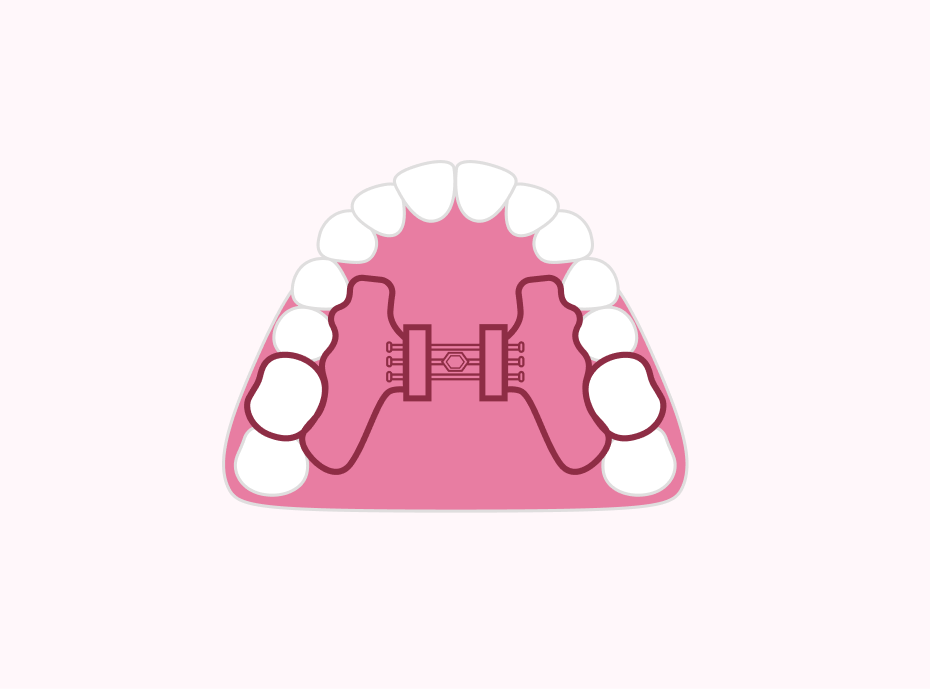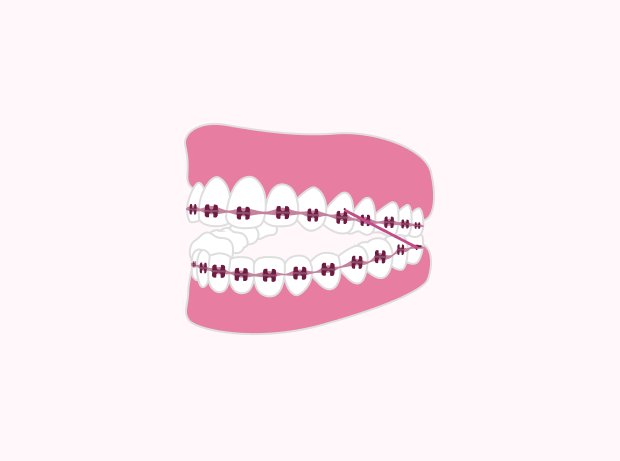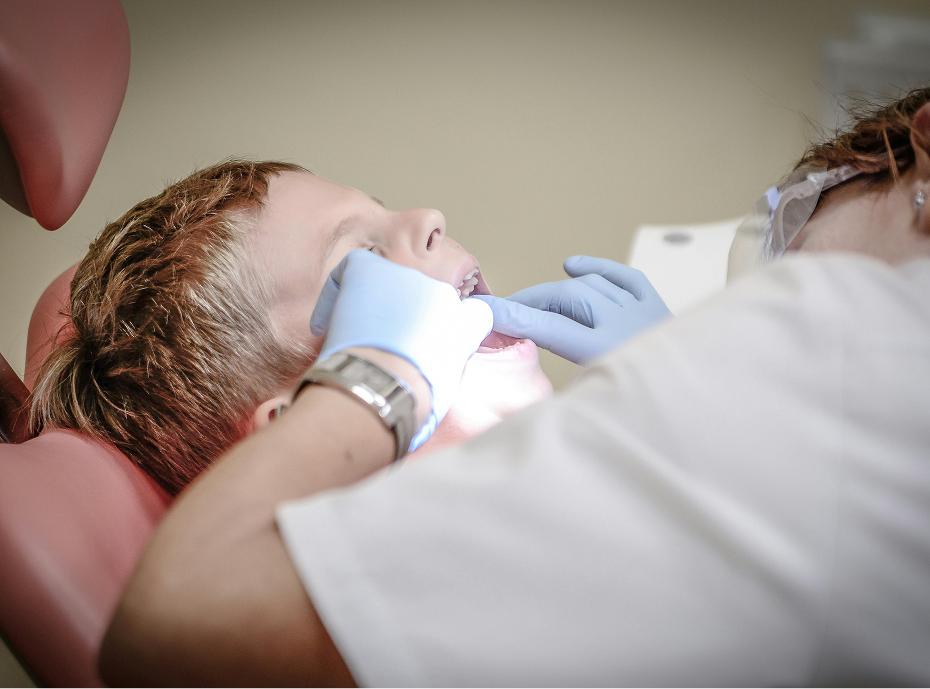If You’re Born With Tongue Tie.
You’ve most likely heard the term “tongue tied” in terms of someone being flustered and unable to speak. Have you ever heard it described as a literal malformation that restricts the tongue’s movement? Tongue tie is a congenital condition that, if left untreated, could impact a patient’s overall well-being. If you or your child was born with this condition, we recommend consulting a local orthodontist for assistance.
With over 40 years of experience, Atlanta Orthodontic Specialists has been a pioneer in providing exceptional dental care.

Types of Tongue Tie.
Ankyloglossia, also known as tongue tie, is a condition present at birth that can be either anterior or posterior. The lingual frenulum— the band of tissue connecting the bottom of the tongue to the floor of the mouth— causes an anterior tongue tie by attaching closer to the tip of the tongue. This usually happens when the tissue is shorter and thicker than normal.
A posterior tongue tie is located toward the back of the mouth and may be hidden by mucous membranes. This type of condition can be more challenging to diagnose and may significantly limit the tongue’s range of motion and functionality.

Signs and Symptoms of Tongue Tie:
According to the Mayo Clinic, approximately 10% of newborns are born with a lip and tongue tie. As a parent, there are multiple signs of tongue tie that you should be on the lookout for. If you are breastfeeding, you may notice that your baby has difficulty or is unable to latch on. They may cry when trying, make clicking sounds, or continually detach. You may also notice problems transferring milk, which could lead to minimal weight gain despite frequent feedings. Your baby’s tongue may also appear heart-shaped or have a notch in it.
Although the cause of tongue and lip ties is not entirely certain, most professionals believe they may be linked to genetic factors. For an unknown reason, tongue ties are three times more common in boys than in girls.
Symptoms to look out for regarding adult tongue tie include:
- Issues with sticking your tongue out of your mouth past your lower front teeth
- Difficulty lifting your tongue to touch your upper teeth, or moving your tongue from side to side
- Problems eating, drinking, breathing, or speaking
Complications and Risk Factors:
While most people can live with this condition with minimal difficulty, others may experience complications. If left untreated, tongue tie symptoms may lead to poor oral and dental health, tongue thrusting, TMJ, sleep apnea, and other issues.
Poor oral and dental health
Limited tongue mobility can impact a person’s ability to clean their teeth properly. They might not be able to brush or swallow completely, which can leave food debris behind and lead to tooth decay, gum inflammation (gingivitis), and other oral issues.
Tongue-thrust
A space may develop between the lower bottom teeth, or other alignment issues caused by tongue tie could lead to tongue-thrust. Tongue-thrust is a condition in which the tongue pushes too far forward against or between the teeth when swallowing, speaking, or at rest.
TMJ disfunction
Because teeth shift and can be affected by the way the tongue sits in the mouth, an abnormal swallowing pattern may develop. Usually, the tongue rises when food is swallowed to push it to the back of the mouth. If you suffer from adult tongue tie, this may not be the case for you. You may also find it challenging to keep food from moving around your mouth while eating. An incorrect swallowing pattern can lead to multiple problems, such as misaligned teeth and pain and dysfunction in the temporomandibular joints (TMJ), which are located near the base of your ears.
Sleep apnea
If the tongue rests in an unnatural position, it may cause breathing problems, especially during sleep. People with tongue tie often develop dental misalignment and have a smaller palate compared to others, which narrows the upper airway. This increases the risk of their airway collapsing during sleep, which can lead to sleep apnea. Sleep apnea then causes repeated pauses in breathing during sleep, which can be very dangerous.
Treatment Options for Tongue Tie.
Tongue tie in adults can be treated with airway dentistry. Airway dentistry is a new dental focus dedicated to addressing conditions that affect a patient’s dental and craniofacial structures, as well as their airway. Depending on the patient’s age, different treatment options may be suggested.
For example, if you are a parent seeking to fix your baby’s tongue tie, the team at Atlanta Ortho may initially advise you to consult a trained professional about breastfeeding or bottle-feeding. Only if it is deemed necessary will we recommend surgery. In infants, surgery involves a quick procedure called a frenotomy, where the lingual frenulum is clipped to allow the tongue to move more freely. While there is no specific tongue-tie surgery age limit, note that anesthesia is typically not used in younger babies; however, it is administered to older children and adults.

Palatal expanders
A palatal expander is an appliance used to widen the palate (the roof of the mouth), which helps to expand the jaw and improve airway problems.

Braces and aligners
Sometimes, straightening the teeth with braces or clear aligners is sufficient to improve airway problems.

Our oral frenuloplasty and frenectomy procedures
Lip, tongue, and cheek-tie releases are quick, simple, and have fast healing. You can rest assured that you are in safe hands and that the process will be as smooth and comfortable as possible.
Why Choose Atlanta Orthodontic Specialists?
At Atlanta Orthodontic Specialists, we understand that every patient is unique and deserves a personalized treatment plan. Our seasoned team is dedicated to delivering exceptional orthodontic care in a welcoming, low-stress setting. When you visit us, our goal is to make you feel as though you’re coming to see friends, where your individual needs and concerns are our top priority.
Atlanta Orthodontic Specialists uses cutting-edge technology to deliver the best, most efficient, and comprehensive dental care in Atlanta. As innovations emerge, we can improve our services and increase patient comfort. For over 40 years, Atlanta Orthodontic Specialists has provided outstanding orthodontic care to the Atlanta, GA, community.

Frequently Asked Questions.
Is There An Age Limit For Tongue Tie Surgery?
No, there is no age limit for tongue-tie surgery (frenectomy). Although it’s recommended to be done between 2–6 weeks to prevent feeding issues, it can still be performed at any age.
Does Insurance Cover Frenectomy?
Depending on your insurance and the reason for the procedure, a frenectomy may be covered by your insurance. If medically necessary to address issues such as difficulty breastfeeding, speaking, or sleeping, your medical insurance should cover the treatment. If it is for purely orthodontic or oral health reasons, dental insurance will cover it.
How Long Is Recovery?
Tongue tie surgery recovery time generally ranges from one to three weeks. The healing duration can vary depending on whether you have a laser or traditional frenectomy. Laser procedures typically lead to faster healing, with most discomfort subsiding within a few days, whereas traditional frenectomies may take at least four weeks to heal.
Get Your Free Consultation.
Start the journey toward a straighter smile today!